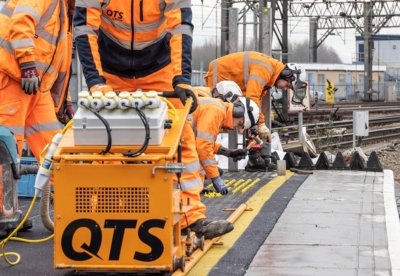Results posted today by the beleaguered contractor show an improvement on 2017 when losses hit £244.4m.
Interserve also revealed further details of its proposed deleveraging deal with financiers which will be voted on by shareholders next month.
Turnover at the group fell 10.7% for the year to December 31 2018 to £2,904m due to a drop in UK construction activity and tighter bidding criteria.
Net debt increased to £631.2m from £502.6m due to problem contracts in UK construction and the Middle East.
The increase will be made up with £110m from bankers as part of the deleveraging plan which shareholders will vote on on March 15.
Interserve said: “If the Deleveraging Plan is not passed on 15 March 2019, the Group will have an immediate working capital shortfall, regardless of whether the Lenders have demanded the repayment of the Group’s borrowings under the Existing Cash Financing Arrangements.
“The Group remains over-leveraged and the successful implementation of the Deleveraging Plan is critical to our future.”
Interserve also confirmed it spent £43m on fees for advisers last year during refinancing talks and that is set to increase by another £33m this year.
It said: “Professional fees incurred in connection with our refinancing totalled £43.0 million during the year. We anticipate that we will incur a further circa £33 million of fees in connection with the Deleveraging plan.”
The firm made another £12.6m in losses on problem Energy from Waste contracts bringing the total up to £229.2m.
Equipment Services arm RMD Kwikform has been the star performer at Interserve but even that division suffered a drop in profits.
Operating profits for 2018 were down 27% to £39.6m as turnover dropped to £195.5m from £229m.
UK construction turnover fell to £756.6m from £972.8m and delivered an operating profit of £2.2m compared to a £10.3m loss last time.
Debbie White, Chief Executive Officer, Interserve said: “Interserve remains focused on positioning the Group for long-term, sustainable success.
“This means continuing the operational progress we are making to put legacy issues behind us.
“However, the Group remains over-leveraged and the successful implementation of the Deleveraging Plan is critical to our future, as it will ensure that Interserve has a competitive financial structure for its future growth. I would urge our shareholders to vote in favour of the Deleveraging Plan.”

















































.gif)





 (300 x 250 px).jpg)
